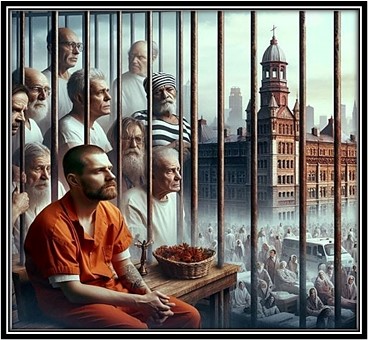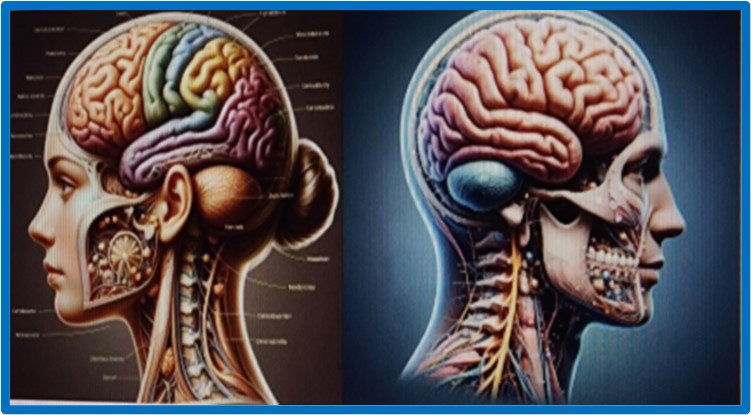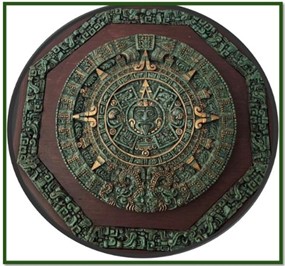The Bright Side:
Inspiration for Positivity,
Motivation and
Optimism
The Bright Side:
Inspiration for Positivity,
Motivation and
Optimism
The Bright Side:
Inspiration for Positivity,
Motivation and
Optimism
The Bright Side
Inspiration for Positivity, Motivation and Optimism
Mission:
Welcome!
Welcome! Please follow my blog for daily posts.
THE BRIGHT SIDE: INSPIRATION FOR POSITIVITY, MOTIVATION AND OPTIMISM

Cecilia Payne Kat Kaelin
Author: Cecilia Payne Kat

Embracing AI in Education: A Paradigm Shift
The Green Wave: Marijuana Legalization Across the United States The legalization of marijuana for both recreational and medical use is rapidly spreading across the United States. Thirty-eight states and Washington D.C., have legalized medical marijuana. As of June 1, 2024, 38 states and Washington, D.C., have legalized medical marijuana: Alabama, Alaska, Arizona, Arkansas, California, Colorado, Connecticut, Delaware, Florida, Georgia, Hawaii, Idaho, Illinois, Indiana, Iowa, Kansas, Kentucky, Louisiana, Maine, Maryland, Massachusetts, Michigan, Minnesota, Mississippi, Missouri, Montana, Nebraska, Nevada, New Hampshire, New Jersey, New Mexico, New York, North Carolina, North Dakota, Ohio, Oklahoma, Oregon, Pennsylvania, Rhode Island, South Carolina, South Dakota, Tennessee, Texas, Utah, Vermont…

Shattered Expectations: A View from the Top (and Underneath) of the Glass Ceiling
Shattered Expectations: A View from the Top (and Underneath) of the Glass Ceiling My career has been a masterclass in shattered expectations. I’ve served my country in the military, built a multi-state business from the ground up, and navigated the labyrinth of state government. I’ve written the rules, led the teams, and watched others reap the rewards of my vision. I’ve been “brain raped by the best” – my ideas, my strategies, my sweat equity fueling the luxury cars and exotic vacations of those who followed my lead. Yet, my compensation never reflected the value I brought to the table. Like many women, I’ve encountered that invisible barrier—the glass ceiling. In some cases –the concrete ceiling. But my experience goes beyond simply hitting it; it’s about the shattering disillusionment that comes when you realize the game is rigged. This blog

The Green Wave: Marijuana Legalization Across the United States
The Green Wave: Marijuana Legalization Across the United States The legalization of marijuana for both recreational and medical use is rapidly spreading across the United States. Thirty-eight states and Washington D.C., have legalized medical marijuana. As of June 1, 2024, 38 states and Washington, D.C., have legalized medical marijuana: Alabama, Alaska, Arizona, Arkansas, California, Colorado, Connecticut, Delaware, Florida, Georgia, Hawaii, Idaho, Illinois, Indiana, Iowa, Kansas, Kentucky, Louisiana, Maine, Maryland, Massachusetts, Michigan, Minnesota, Mississippi, Missouri, Montana, Nebraska, Nevada, New Hampshire, New Jersey, New Mexico, New York, North Carolina, North Dakota, Ohio, Oklahoma, Oregon, Pennsylvania, Rhode Island, South Carolina, South Dakota, Tennessee, Texas, Utah, Vermont, Virginia, Washington, West Virginia, Wisconsin, and Wyoming. States with Legal Recreational Marijuana (as of May 2024) Alaska, California, Colorado, Connecticut, Delaware, Illinois, Maine, Maryland, Massachusetts, Michigan, Minnesota, Missouri, Montana, Nevada, New Jersey, New Mexico, New York, Ohio,

The Great Unraveling: How the Fall of State Hospitals Led to Overcrowded Prisons
The Great Unraveling: How the Fall of State Hospitals Led to Overcrowded Prisons The closure of state hospitals in the United States began in the mid-20th century, primarily due to the deinstitutionalization movement and the introduction of psychiatric medications. This process continued through the late 20th and early 21st centuries. However, specific statistics on the number of closures per year can be challenging to find. Here’s an overview and some available data: 1955: The peak of the state hospital population, with approximately 560,000 patients. 1960s-1970s: Deinstitutionalization gains momentum, significantly reducing state hospital populations. 1970-1990: Approximately 14 state hospitals closed. 1990-present: An acceleration of closures, with 40 state hospitals closing between 1990 and 2010. This trend has likely continued, though precise figures for recent years are more complex. Factors Contributing to Closures: Deinstitutionalization: The belief that community-based care is preferable to

The 10% Brain Myth: Unveiling the Truth Behind Our Powerful Minds
The 10% Brain Myth: Unveiling the Truth Behind Our Powerful Minds The idea that we only use 10% of our brain is a popular myth. We use all brain parts, just not all simultaneously. The Brainstem: Our Ancient Core The brainstem is the oldest part of our brain, responsible for vital functions like breathing and heart rate. It’s our survival center, working tirelessly in the background. The Subconscious: A Mysterious Realm The subconscious is thought to reside throughout the brain, not in a specific location. It often influences our thoughts, emotions, and behaviors without realizing it. Why Have 90%? A Question of Evolution The brain’s complexity is a product of millions of years of evolution. Each part serves a purpose, even if we don’t fully understand it yet. This “extra” capacity allows for adaptability and learning. Unlocking Our Full Potential

Cause and Effect: The Domino Effect Shaping Our World
Cause and Effect: The Domino Effect Shaping Our World Have you ever paused to consider the why behind events in your life? Why does your toast burn, why does your favorite team win, or even why civilizations rise and fall? It all boils down to a fundamental principle: cause and effect. The Domino Effect Explained Think of it like a chain reaction of dominoes: Cause: The initial action or event that sets everything else in motion (the first domino being pushed). Effect: The consequences, outcomes, or results that follow (the dominoes toppling in sequence). Why Grasping Cause and Effect is Crucial This concept isn’t just academic – it’s a powerful tool: Understanding: We gain insights into why the world works the way it does. Prediction: We can anticipate potential outcomes and make informed decisions. Influence: We can take action knowing

The 10/90 Leadership Dynamic: Implications for Advertising, Consumerism, and Shady Politics
The 10/90 Leadership Dynamic Implications for Advertising, Consumerism, and Shady Politics A professor’s remark about the world being 10% leaders and 90% followers sparked my curiosity in college. If this holds, it sheds light on various aspects of our society. Advertising’s Influence on the 90% Advertising thrives on this dynamic. It targets the 90% who are more likely to follow trends and trust authority figures. Ads often appeal to emotions and desires, nudging consumers towards products they may not necessarily need. Consumerism: Following the Herd This 10/90 split is reflected in consumer behavior. Many people buy based on what’s popular or endorsed by celebrities, often neglecting their own needs and values. Consumerism thrives on this herd mentality. Shady Leaders and Blind Followers In the political arena, manipulative leaders exploit this dynamic. They prey on the 90% who crave direction and

The Fascinating World of the Mayan Calendar
The Fascinating World of the Mayan Calendar The Mayan civilization, renowned for its impressive architectural feats and deep understanding of astronomy, left behind a complex and intriguing timekeeping system known as the Mayan Calendar. This calendar, far from being a simple tool for tracking days and months, was deeply intertwined with their cosmology, religion, and daily life. Let’s explore this ancient calendar’s intricacies and its significance. The Components of the Mayan Calendar The Mayan calendar is not a single calendar but a system of interconnected calendars, each serving a different purpose: The Tzolkin (Divine Calendar): This 260-day calendar was used for ceremonial purposes and divination. It consisted of 20-day signs, each with a unique glyph and meaning, combined with 13 numbers. The Haab (Civil Calendar): This 365-day calendar was closer to our modern solar year and was used for agricultural

Transplants and Cellular Memory: Fact or Fiction?
Transplants and Cellular Memory: Fact or Fiction? Organ transplants save lives, but could they also transfer memories and personality traits? Cellular memory suggests that cells store experiences, leading to changes in recipients. While anecdotal reports exist, scientific evidence remains limited. What is cellular memory? The idea is that memories aren’t solely brain-based but also stored within cells. Anecdotal evidence: Transplant recipients report changes in preferences, skills, or emotions after surgery. Scientific perspective: Research is ongoing, exploring epigenetics and other mechanisms. The debate: While intriguing, cellular memory lacks conclusive proof.Could our cells hold secrets beyond our conscious minds? The question sparks curiosity and furthers investigation into the fascinating connection between body and mind. Organ transplant recipients have reported experiencing changes after surgery that they attribute to the donor’s cellular memory. Some notable examples include: Food preferences: A vegetarian develops a sudden

Hypocrisy Chronicles: A Deep Dive into History’s Most Notorious Posers
Hypocrisy Chronicles: A Deep Dive into History’s Most Notorious Posers Have you ever met someone who preaches water but guzzles wine? Someone whose actions scream louder than their words. Congratulations, you’ve encountered a hypocrite! Hypocrisy, the art of saying one thing and doing another, is as old as humanity. Throughout history, some quite famous figures have mastered this deceitful dance. What is Hypocrisy, anyway? Let’s start with the basics. Hypocrisy is the practice of claiming to have moral standards or beliefs to which one’s behavior does not conform. It’s a gap between words and deeds, a disconnect between what we preach and practice. Hypocrites Through the Ages: An In-Depth Look Cardinal Richelieu: An influential figure in 17th-century France, Richelieu advocated for religious tolerance while simultaneously persecuting Protestants. His political machinations often contradicted his supposed piety. Nero: The Roman emperor was